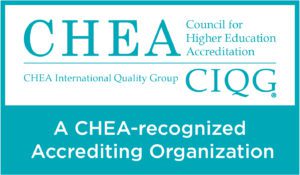
ACPE accreditation is public recognition that a professional degree program leading to the Doctor of Pharmacy degree is judged to meet established qualifications and education standards through initial and subsequent periodic evaluations. Accreditation is distinguished from licensure, which applies to individuals.
The essential purpose of the accreditation process is to provide a professional judgment of the quality of a college or school of pharmacy’s professional program and to encourage continued improvement thereof. Accreditation concerns itself with both quality assurance and quality enhancement. Those programs accredited by ACPE are published and maintained on ACPE’s website under Accredited Programs. Recognition does not imply or infer that all Doctor of Pharmacy programs are equivalent beyond meeting the expectations of the accreditation standards. Accreditation standards include both quantitative and qualitative parameters.
A professional program is evaluated on the extent to which it accomplishes its stated goals and is consistent with the concept that pharmacy is a unique, personal service profession in the health science field. In the application of these standards, literal conformity in every detail is not required beyond meeting the minimum expectations of the standards. Variations are to be expected, and superiority in certain qualities is a reality. Many college and school programs exceed the standards in one or more of the various elements comprising accreditation. In pharmacy education, as in American education generally, there is diversity, which is a potential strength. The accreditation process assures basic expectations for quality pharmacy education.
USDE Recognition
ACPE is recognized by the US Department of Education (USDE) for the accreditation and preaccreditation, within the United States, of professional degree programs in pharmacy leading to the degree of Doctor of Pharmacy, including those programs offered via distance education. ACPE’s Continuing Pharmacy Education Provider Accreditation and International Services programs do not qualify for USDE recognition.
CHEA Recognition

PharmD programs accredited by ACPE are published and noted on the ACPE website.
Directory of Professional Programs of Colleges and Schools of Pharmacy
ACPE requires the programs it accredits to meet the expectations of all 25 standards of ACPE’s accreditation standards. Any standard the board finds to be partially compliant or non-compliant can be seen by clicking on the Detailed PharmD Accreditation History link for each college or school. The program has four years to bring the standard into compliance as per U.S. Department of Education. If no standard is noted, the program is in compliance with all 25 ACPE Accreditation Standards.
The following documents, Review Type, Board Action, and Accreditation Status, provide definitions for the information found under the accreditation history links of the PharmD programs listed above under Programs by Status and Programs by State.
The document, Programs Up For Review, provides the PharmD programs being reviewed in the current academic year.
The following page will provide guidance on how to establish a new program.
Accreditation of professional degree programs in pharmacy provides a national basis for quality assurance. For the profession, accreditation provides a means for practitioners to participate in setting of requirements for preparation to enter the profession. Accreditation also assures improvement in the professional services available to the general public since accredited programs are expected to modify their requirements to reflect advances in knowledge and practice. ACPE Standards outline required elements for accreditation. Accreditation decisions are based upon the extent to which a PharmD program meets the expectations of ACPE Standards. Guidance to Standards 2016 provide further details and outline the recommendations for meeting the required standards.
Effective January 1, 2022, version 2.0 will be utilized for all accreditation visits. AAMS will be updated during 2021 to replicate Rubric 2016 Version 2.0 for program use.
Documents, Forms and Materials
Standards 2016
Accreditation Process—General
Application Process—Establishing New Programs
Assessment
Self-Studies and Interim Reports
Faculty (templates are incorporated into AAMS 2.0)
IPPE/APPE (templates are incorporated into AAMS 2.0)
Enrollment (these items are incorporated into AAMS 2.0)
Financial
Frequently Asked Questions
The customary on-site review cycle is eight years; however, ACPE reserves the right to review programs for purposes of accreditation in a cycle of less than eight years.
This summary shall be reported as percent of graduates whose primary pursuit is: 1) employment within the profession of pharmacy; 2) employment outside the profession of pharmacy; 3) post-graduate education or residency training; or 4) other/lost to follow-up. A full accounting across these four categories (i.e., 100%) of the graduating class is expected. How and when the data are captured to prepare this summary report is at the discretion of the college or school; a brief description of the methodology used to capture the data should be included with the report.
Licensing, NAPLEX and FPGEE Questions
1600 Feehanville Drive
Mount Prospect, Illinois 60056
Phone: (847) 391-4406
FAX: (847) 375-1114
E-mail: [email protected]
Web: www.nabp.pharmacy
Questions Regarding Admissions to ACPE Accredited Programs
Please contact the American Association of Colleges of Pharmacy at:
1400 Crystal Drive, Ste. 300
Arlington, Virginia 22202
Phone: (703) 739-2330
FAX: (703) 836-8982
E-mail: [email protected]
Web: www.aacp.org
Per the Policies & Procedures, the following include the different classifications of Accreditation Status.
Distance learning allows the school to go to the students, if family, work or finances make it impossible to attend a traditional, brick-and-mortar institution. The scheduling flexibility of some distance-learning programs makes them suitable for part-time students. In fact, distance learning has been popular for many years in some non-traditional Doctor of Pharmacy (Pharm.D.) programs developed for practicing pharmacists with baccalaureate (B.S.) degrees. Distance-learning programs that offer a Pharm.D. to entry-level students, however, are a completely new occurrence.
While distance learning has much to offer place-bound students, some educational experiences may be lost. Going away to school exposes students to life experiences that help to shape interpersonal and coping skills. Daily interaction with pharmacy faculty and peers may assist in developing values and skills for socializing students into the profession. On the other hand, practice environments are continually changing, so distance learners may actually be developing social skills for health-care settings of the future, where interactions between professionals and patients are likely to take place through distance communication as well as face to face.
Learning from a distance is not for everyone, but if you or someone you know has the interest, self-discipline and motivation to succeed in a distance-learning program in pharmacy, then contact colleges or schools with distance-learning pathways to see if one is right for you. A list of ACPE-accredited colleges and schools with distance-learning pathways is on this website.
Questions about Establishing a New PharmD Program
* Scroll up to the section titled Documents, Forms and Materials (click to expand the “Other Resources” section) for the listed documents.
For a complete listing of the current year’s fees, please refer to the above section titled, “Financial”.
Note: ACPE reserves the right to adjust fees should circumstances dictate.
Any program considering an application for a new college or school of pharmacy is highly encouraged to consult ACPE staff well before an initial application is submitted.
Professional Degree Program
- ACPE Self-Study Workshop: July 29th – 30th, 2024. Register Now
